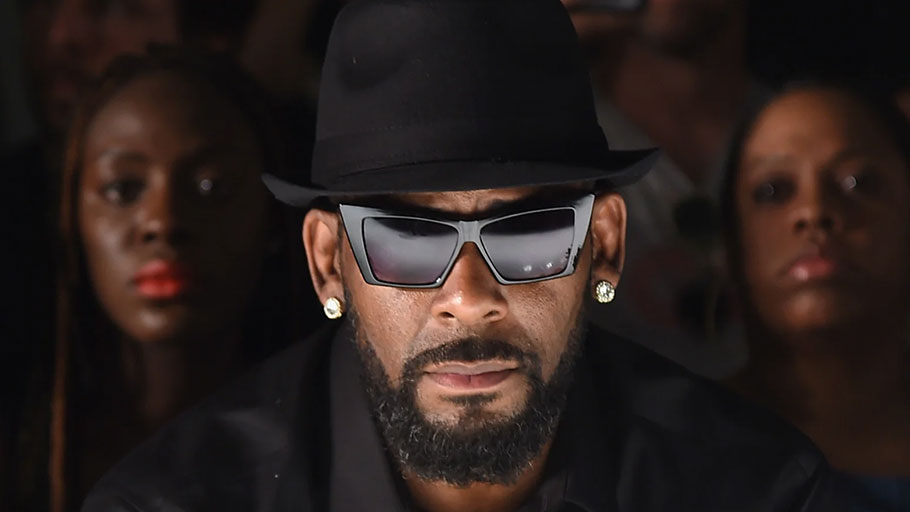By Frederick Joseph, The Root —
It happened twice and she couldn’t tell anyone. But she told me.
In the decades since it had happened, she hadn’t told any other men because she thought it would make things worse. But she knew me—she raised me.
My father left when I was born and all of the men in my family were in and out of prison, which is why I’ve been the patriarch of my family since I was a child. It’s also why the only people around to show me how to do the job were women.
Specifically, black women. My mother and grandmother.
Not only did they raise me to provide, these women raised me to be someone they could confide in, someone they could trust. That trust is why, when I was 17 years old, my grandmother decided she was comfortable telling me some of the stories from her past. One of those stories was about how she had been sexually assaulted—twice—by the father of one of my uncles.
I still can’t put into words to how I felt at the time, but rage and confusion seem to do some justice.
The first thing I asked her was whether she knew if he was still alive, because if he was, I was going to kill that motherfucker. Thankfully, for both of us, she told me he had passed a few years earlier.
My confusion then led me to ask why she didn’t tell anyone. She responded, “things were different then, women couldn’t talk about what happened to them. I told people; I just didn’t tell any men. They would have said I was lying.”
My grandmother was right about most things, but this wasn’t one of them. Things weren’t different then; we are still forcing women to remain silent. Still calling them “liars.”
As is the case with the victims of R. Kelly.
I don’t want to rehash what R. Kelly has done. His history of alleged sexual abuse against countless women spanning various decades, cities and ages is well known. The Surviving R.Kelly docu-series and the #MuteRKelly movement do a far better job of discussing it all than I ever could.
I don’t want to only talk about whatR. Kelly has done, I want to also talk about how he has done it. For many, the answer only requires a look in the mirror.
Following the airing of Surviving R. Kelly,Part 1, I saw many people who were moved by the series and outraged for the victims. Helping the women heal and bringing R. Kelly to justice were high on the agenda. It seemed like a moment of hope.
But something both heartbreaking and insidiously familiar for many women also happened.
Within days, not only was the #UnMuteRKelly hashtag trending as a counter-call-to-action for #MuteRKelly, his music streams increased by 116 percent during and following the shows airing.
Worst of all was the treatment of the victims. Following the series, the women were threatened and harassed online and in person. Troll social media pages attempted to discredit and shame them into silence; going as far as posting nude photos and videos of them for public consumption.
But none of this should be surprising because we created and continue to uplift the infrastructure that makes attacking, silencing and ignoring Black women’s trauma normal behavior.
As a black man, I can honestly say we place the weight of the world on black women. Wanting of them, asking of them, taking from them. Expecting their hearts to be a home when we are in need, but seldom offering the same refuge.
We see this in the lack of support for the victims of R. Kelly. The fact that there is a galvanization to support him in spite of the atrocities he’s reportedly committed is the manifestation of a generational assault on black women.
Again, it’s not only about what he has done; it is very much about how we give him the power and resources to do it.
R. Kelly is only able to hire his attorneys—who publicly refer to these victims as “opportunists”—because we still stream his music. He is only able to employ people who create hashtags and pages berating and shaming these victims because we attend his concerts. We are the root of his power.
But this isn’t just about supporting R. Kelly; this is about all of the black women whose pain we don’t know. Women like my grandmother. Women who we don’t protect for speaking up and being brave. Instead, we let them face the backlash alone and we watch as people tear down the foundation of their lives, while we should be giving them a port in the storm, as they do so often for us.
Instead, we are the storm.
We have conditioned black women to not trust us, and the support of R. Kelly is an example of how we continue to prove them right. We have made martyrs of abusers and public enemies of victims, all so we can “Step in the Name of Love” at weddings.
Our community created this monster; because people like R. Kelly know that as much as people say “listen to black women” we only do it when it serves us. We don’t give them the space to be heard, the space to be safe.
As black women continue to fear sharing their truth, knowing they will be called liars and have their worlds torn apart, we have to ask ourselves: Are we creating the monsters or are we the monsters?
This article was originally published by The Root.
Frederick Joseph is the author of the upcoming book “The Black Friend” (2021), a #ForbesUnder30 Marketer, and the founder of the marketing agency We Have Stories.















